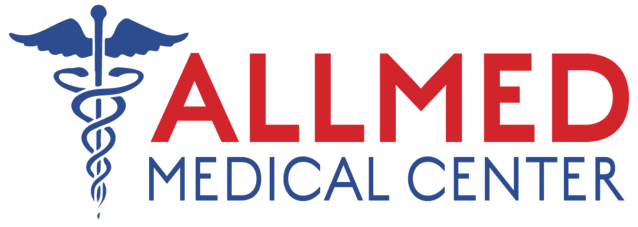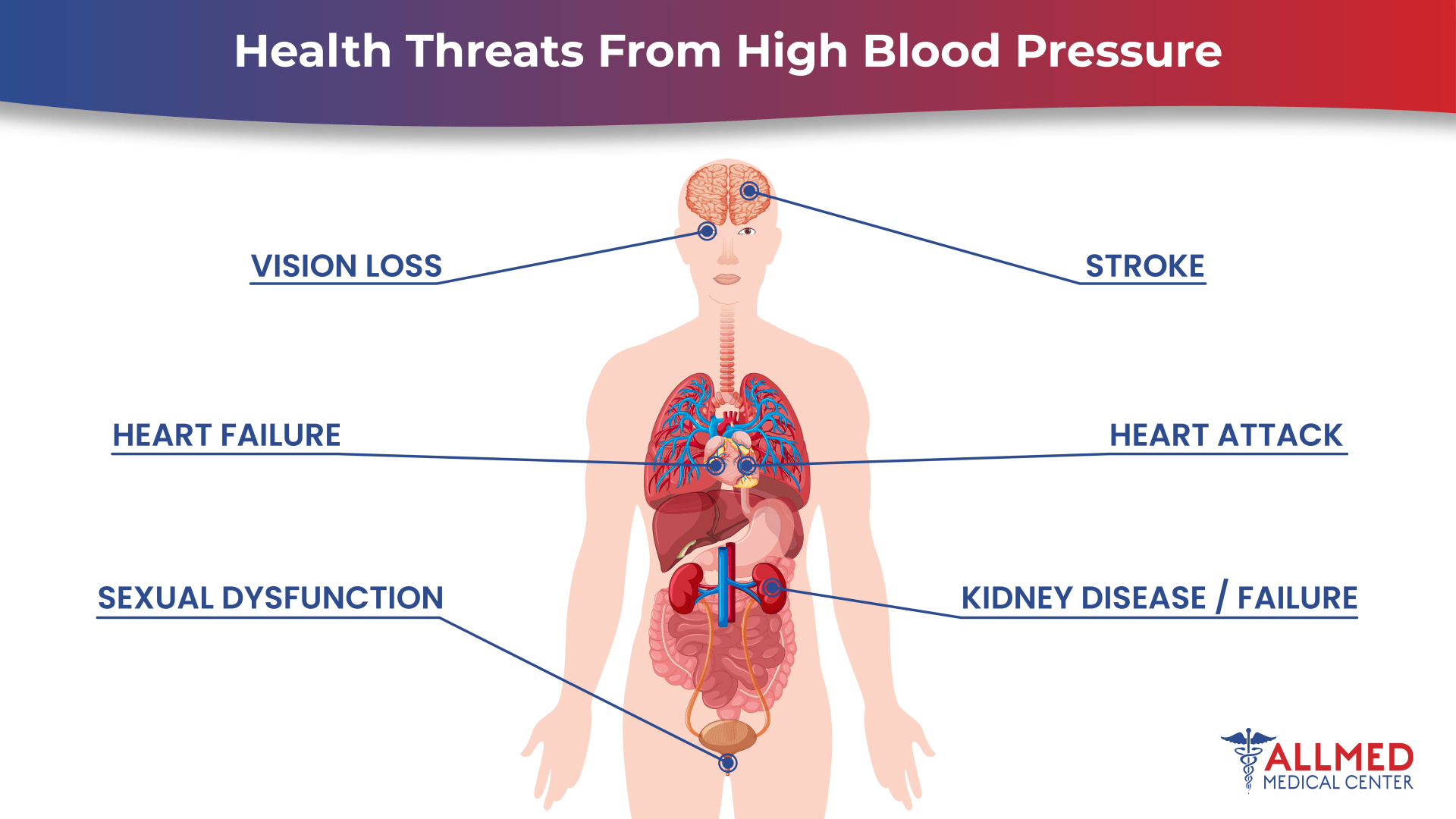
We Proudly Accept Medi-Cal and Medicare
Write your caption hereButton
Now Accepting Walk-ins!
Write your caption here

We Proudly Accept Medi-Cal and Medicare
Write your caption hereButton
Now Accepting Walk-ins!
Write your caption here

High blood pressure, or hypertension, is so common among American adults, it's easy to think that it's no big deal. On the contrary, though, high blood pressure comes with a range of dangers, including heart disease and stroke, two of the country’s leading causes of death.
There are plenty of factors that could put you at risk of high blood pressure, from food and substance abuse, to variables that are out of your control. Your age, race, family history, and diet, as well as a sedentary lifestyle, smoking, drinking, or just plain stress are some of the most common risk factors for high blood pressure.
Spot the Symptoms of High Blood Pressure From a Mile Away
Aptly dubbed as the “silent killer,” high blood pressure doesn't normally manifest symptoms even when it’s dangerously high. That’s why yearly physicals are so crucial for early detection. Even if you look or feel healthy, the adverse effects of high blood pressure can creep up on you and catch you by surprise — something a physical exam can help prevent.
While not as common, some people with high blood pressure show symptoms like constant headaches, shortness of breath, and nosebleeds. If these persist, you should immediately consult your doctor.
Most people have at least heard in passing that the ideal blood pressure is 120/80, but it usually changes regularly, depending on your activities. It rises when you exercise, are stressed, or in plenty of other circumstances. However, if your blood pressure (BP) is constantly high, it can damage your artery and blood vessels over time, leading to many adverse health complications.
Here are some of the most common conditions high blood pressure can cause:
Heart Attack and Stroke
Caused by the thickening or hardening of arteries, heart attack and stroke are two of the most common hypertension-caused diseases, accounting for 1 in every 4 deaths in America. Most, if not all, of the preventive heart disease measures have something to do with lowering your blood pressure. That includes keeping cholesterol levels under control, staying at a healthy weight, eating a healthy diet, limiting alcohol intake, and managing stress.
Aneurysm
When your blood pressure is consistently high, it can cause your blood vessel wall to weaken and bulge, thus forming an aneurysm. A life-threatening condition, aneurysms can develop in any part of the body. But two of the most common areas where they form are in the brain and heart. If left untreated, an aneurysm can burst or rupture, spilling blood into the surrounding tissues, leading to stroke, brain damage, coma, or even death.
Kidney Disease / Failure
A leading cause of kidney failure, high blood pressure damages the arteries around your kidneys, limiting the blood flow towards the kidney tissues. Your body's own filtration system, the kidneys consist of a dense network of blood vessels. To function properly, they require unrestricted blood flow for an adequate supply of oxygen and other necessary nutrients. One of the symptoms of kidney disease is painful and frequent urination.
Retinopathy and Vision Loss
Not to be confused with the diabetes-caused diabetic retinopathy, hypertensive retinopathy is the damage to the retina caused by hypertension. Your retina contains many tiny blood vessels that are susceptible to damage from high blood pressure. The lack of blood flow to the retina can lead to blurry eyesight, or worse, complete vision loss.
Sexual Dysfunction
While not as life threatening, hypertension can also have adverse implications on the sex lives of both men and women. High blood pressure can cause blood vessels to tighten, restricting the blood flow to the reproductive organ. This makes it difficult for men to achieve and maintain an erection. While the links between sexual dysfunction and high blood pressure in women are not as well understood, symptoms like decreased sex drive, vaginal dryness, and difficulty achieving orgasm can all be indicative of insufficient blood supply caused by damaged arteries.
Mental Decline
Aside from brain aneurysms, high blood pressure also puts you at risk of developing other brain-related conditions that can either affect your cognitive ability or even compromise your overall health and quality of life. The brain is an organ that needs a constant and sufficient oxygen supply, which blood delivers through the arteries. Once these channels are damaged, the odds of you suffering from memory loss and other life-altering conditions like Alzheimer's disease and dementia increase.
It Starts With Lifestyle Choices
While the hypertension risk factors include certain aspects you cannot control, like your age, race, and family history, you can still offset that by making healthy lifestyle choices. Regularly seeing your doctor is also crucial in minimizing your risk of high blood pressure and the complications that can arise from it.
Whether it’s switching to a healthier diet,
exercising regularly, or eliminating unhealthy habits like smoking and drinking, staying healthy is a conscious and constant effort we each commit to, one day at a time.
AllMed Medical CentersServing
Greater Sacramento
Allmed Medical Center | All Rights Reserved.












